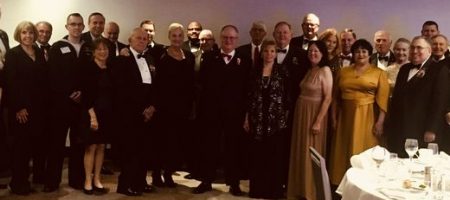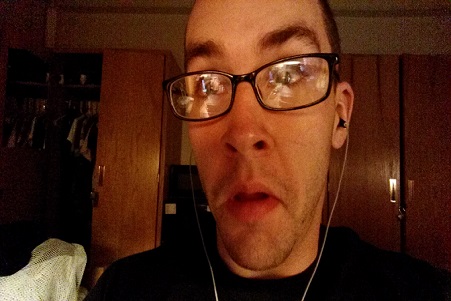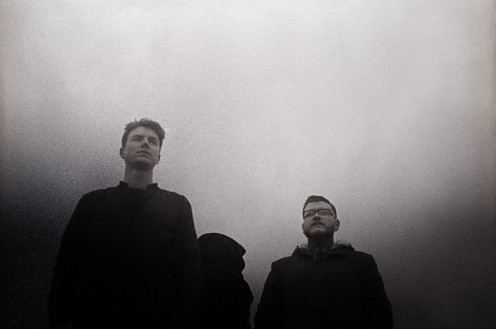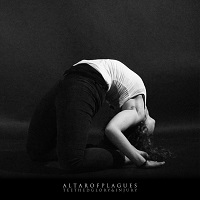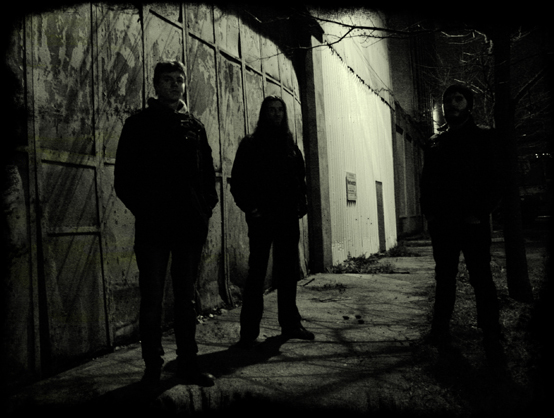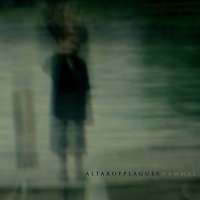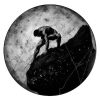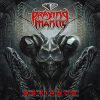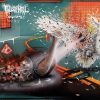Altar of Plagues – Forged by an Urban Abyss
Tuesday, 7th May 2013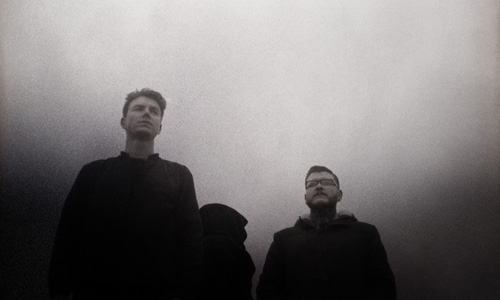
2013 is thus far an exotic-laced and thoroughly overwhelming year. Fantastic releases have been popping out of the woodwork like mad and at the ‘tip of the spear’, so to speak, of these is Altar of Plagues’ fantastic new work Teethed Glory & Injury. At once a continuation of and reinvention of the band’s sound, it’s a harrowing and emotionally exhaustive rush through left-field dynamics and lightless depths of the self. It’s not to be missed, that’s for sure, and guitarist/band mastermind James Kelly was kind enough to engage us in a round of questions concerning the record, life changes, and given us a fantastic new insult to use on ‘kvlt’ douches that seem to pop up with impunity on message boards across the internet. Read on to find out!
Dead Rhetoric: Congrats are in order because the new album is a fucking beast of a release. That being said, it’s also very different than all your previous work in a very initially tangible way in featuring shorter ‘songs’. What prompted that shift?
James Kelly: Thank you. I think firstly, we grew tired of an association with a ‘scene’ which we never really felt a part of in the first place. It can be quite restrictive when you are simply put in a box with a certain peer group. I don’t mean to sound like I am disregarding such an association, but we did not want to feel that we had an obligation to create a record that sounded a particular way.
Additional to that, I relocated to London (England) almost immediately after recording Mammal. It was a drastic change in lifestyle for me, one which affected how I approached the music I create. I have been quite removed from metal music since I moved here as I became immersed in some different music scenes. That was largely due to the fact that metal music was no longer moving me or making me excited. Maybe there were only so many different combinations of blast beats and distorted guitars I could hear before seeking out something else.
Dead Rhetoric: Urban decay has seemed to be a major component of your music in the past and while it still seems there are shades of that here, another noticeable shift has been introduced through a very human element. Here again, what brought that about?
Kelly: We have always used the band as a mean to express ourselves in a very real and human way, as we were never interested in the theatrical or fantastical side of music. With time, I think that we have honed our craft so to speak and we can much more channel ourselves through the music. I think when the band began releasing music, while we always wanted to follow our own path, we were not confident nor able enough to create the sort of works we had in mind. With TGAI we have achieved everything that we have always wanted to, from the music itself to the visuals. It is a very pure distillation of what Altar of Plagues represents for us.
Dead Rhetoric: How have you been enjoying the divisive response the video for “God Alone” video has gotten? (Raw physicality trumps another let’s playinanemptyforest, no?)
Kelly: I wouldn’t say that I’ve enjoyed it as such but I am glad that it had received a reaction, whether good or bad. I would not have enjoyed indifference!
Dead Rhetoric: While all being thematically tethered to what appears to be a very dark central concept, there’s nevertheless a lot of variety here. Can you walk us through how some of these songs came together?
Kelly: I don’t really have a set way of composing material, and Altar of Plagues is somewhat different in that we do not compose the material as a group. I get things to about 80% and then the other guys come on board for the last hurdle. These song are probably the least linear that I have ever written. Writing the material was a long and meticulous process, as was recording it.
Dead Rhetoric: How intensely are you looking to get out on the road after the album drops? (and as an aside, can you give us some insight into that title!)
Kelly: We have decided to take a different approach to live performance. We have done some lengthy tours in the past but honestly, I don’t think it suits us. For one thing, we commit a massive amount of physical energy to our live show. When you’re doing it seven nights a week there is bound to be a lag, and I think it is a injustice to both the audience and ourselves when that is something that is witnessed. But we are slowing filling our calendar and will shortly have some show announcements.
At the risk of sounding like we are evading an explanation, we would much rather leave the album title and lyrics open to interpretation. For me the magic of an artwork is the relationship you experience with it yourself. It is very rarely that I will take a liking to something I may have disliked once it has been conceptualised or explained to me. But I would think if a person focuses on the words ‘teethed’ and ‘glory,’ and then the posture of the figure on the cover, then the art may begin to make more sense.
Dead Rhetoric: To create something this intense has to really take it out of you. What’s on the horizon for the Altar of Plagues camp?
Kelly: Nothing other than live shows. Creating this really did take a lot out of me. It was a long and exhausting process.
Dead Rhetoric: What are some of the major influences that have gone into Teethed Glory and Injury? I can’t imagine they’re all musical in nature.
Kelly: One of the biggest has been my relocating from my former home in rural Ireland to London, England. This has had quite an impact on my person, which subsequently affects the music that I create. I have no doubt in my mind that relocating from a spacious rural area to a crowded and aggressively paced city has impacted on my general mindset. I very much doubt that I would have produced the same album if I lived in my former home in Ireland. London can be inescapably relentless, which I think creates a tension that can gives people here quite an aggressive edge.
I became immersed in the electronic music scene when I moved to the UK. It is something that I have always had a passion for but had rarely interacted with outside of personal listening. There is an extremely vibrant and eclectic scene in London, so that gave me the opportunity to experience this music in a new environment. I found that to be an extremely inspirational time and I began to write music almost exclusively on my computer. It took quite a while to develop that skill set, but once I had it allowed me to see the music I create in a more three dimensional manner. There possibilities are endless and you are not restricted to the traditional template of guitar, vocals drums etc. It also allowed me to think about composition in a less linear way than I had before, which had an effect on how I wrote this material.
Dead Rhetoric: “Burnt Year” is a particularly exhausting experience, can you break that monster down for us?
Kelly: That was a song that had existed in my mind for some time, I think it was the first I actually composed for the album. It took a very long time to get it right as there was a great deal of balance needed. As with a lot of the material on TGAI, there are so many layers in the tracks that the sounds and their sources are now foreign to me. I am unable to recall where certain things came from. As far as the vocal performance on that track goes, full credit goes to Dave. I couldn’t believe what I was hearing when we recorded his vocal takes.
Dead Rhetoric: ‘Black metal’ as a term has come to mean a lot of different things to a lot of different people nowadays. Do you think you still fit within the black metal fold? For you, what is black metal? Do the minor details so many die-hards obsess over really even matter?
Kelly: I try not to think about this too much anymore, as this is a question we have been asked since day one. I think that no matter how much it is discussed, people will never see eye to eye on what it ‘is.’ These days I just regard it as simply a form of music that I have an interest in. Black metal is no longer the only music that offers the sort of emotional intensity I seek in music. I certainly feel out of place in that scene, and I often have a very hard time relating to people whose only interest is the black metal scene.
Dead Rhetoric: That being said, there have been some very particular developments geographically(compare say, French groups like Deathspell Omega/Blut Aus Nord with American groups like Krallice or Nachtmystium). Tying into the above question, where does Altar of Plagues fit in this wild spread?
Kelly: I don’t think we do. I read things about black metal movements sometimes but I honestly find the whole scene to be in a very unhealthy state of competition. There has rarely been anyone contact us to say they like what we or that they feel we share common ground. I attempted such things in our formative stages, but having met too many inflated egos and more ‘cult’ than thou type, I just gave up and stayed in my own bubble.











